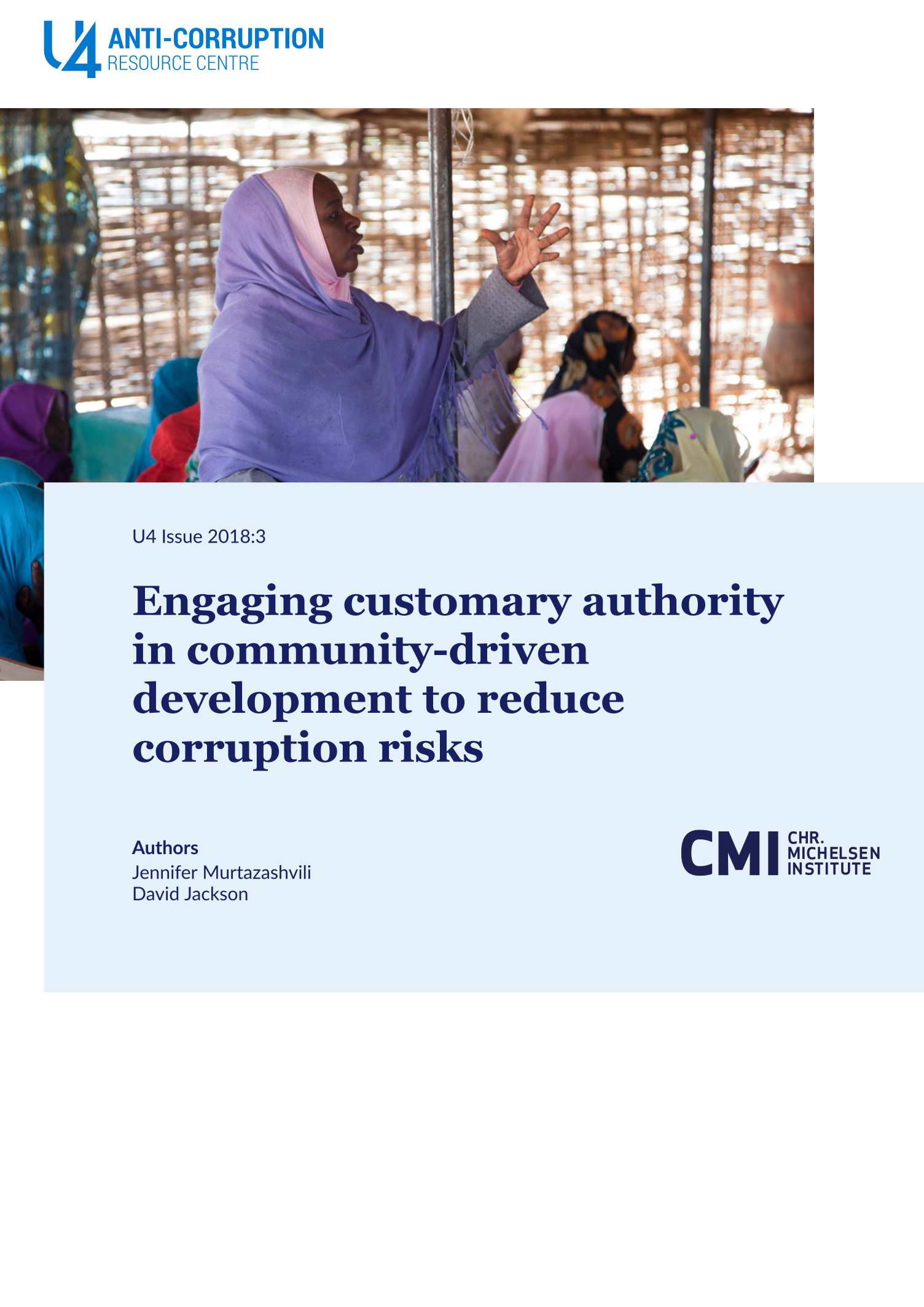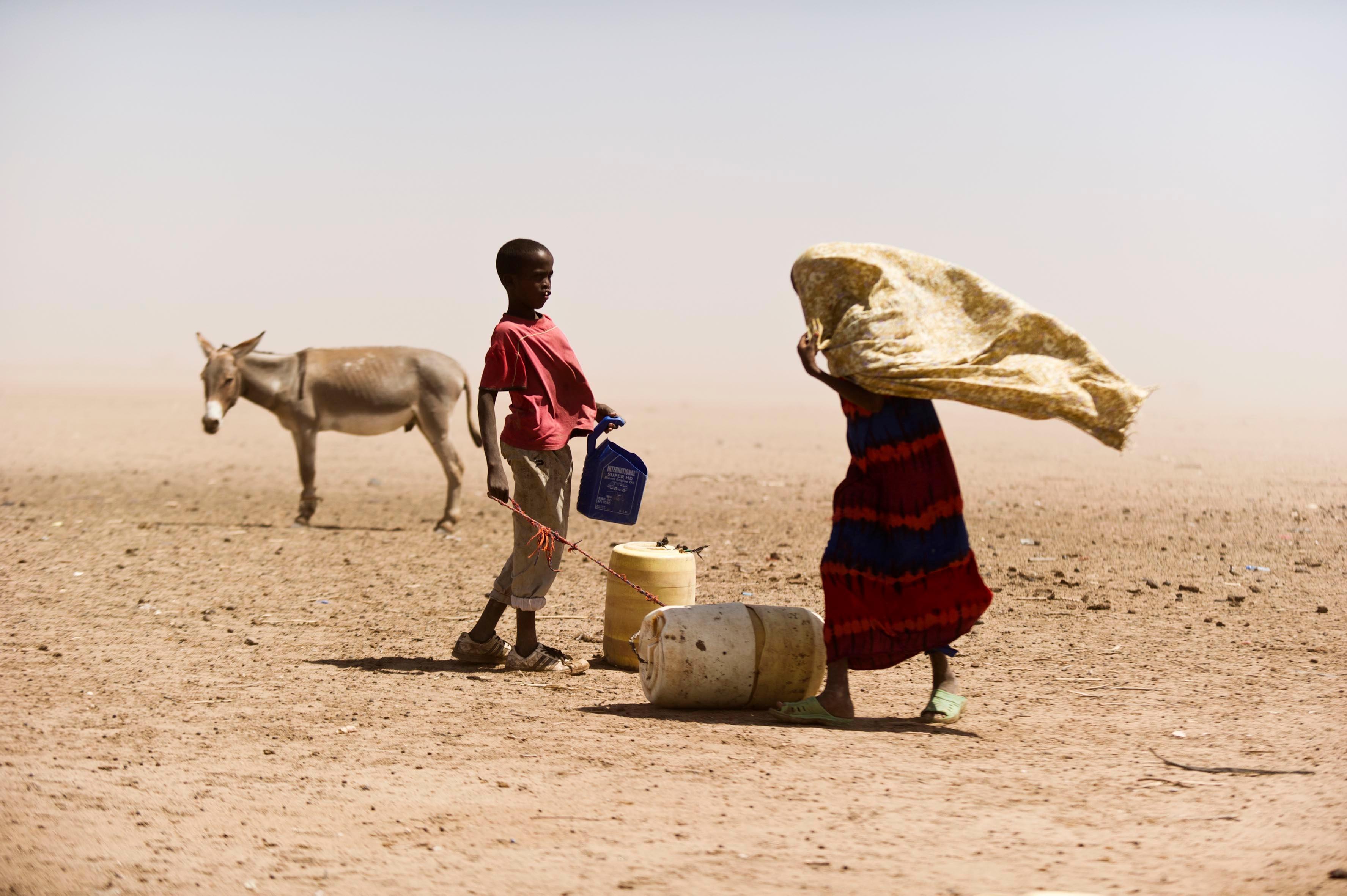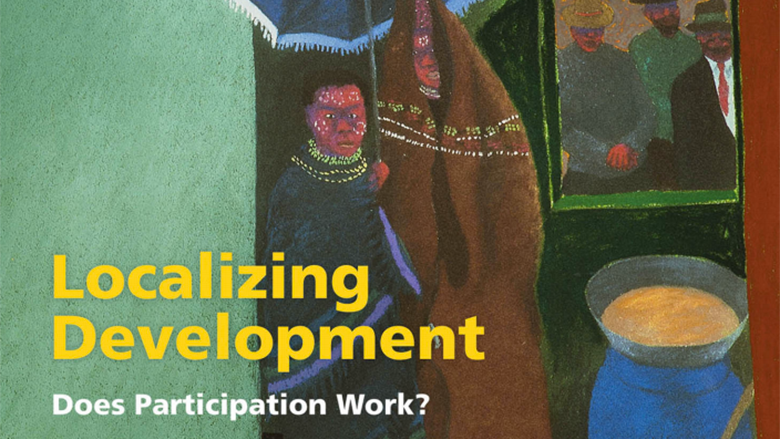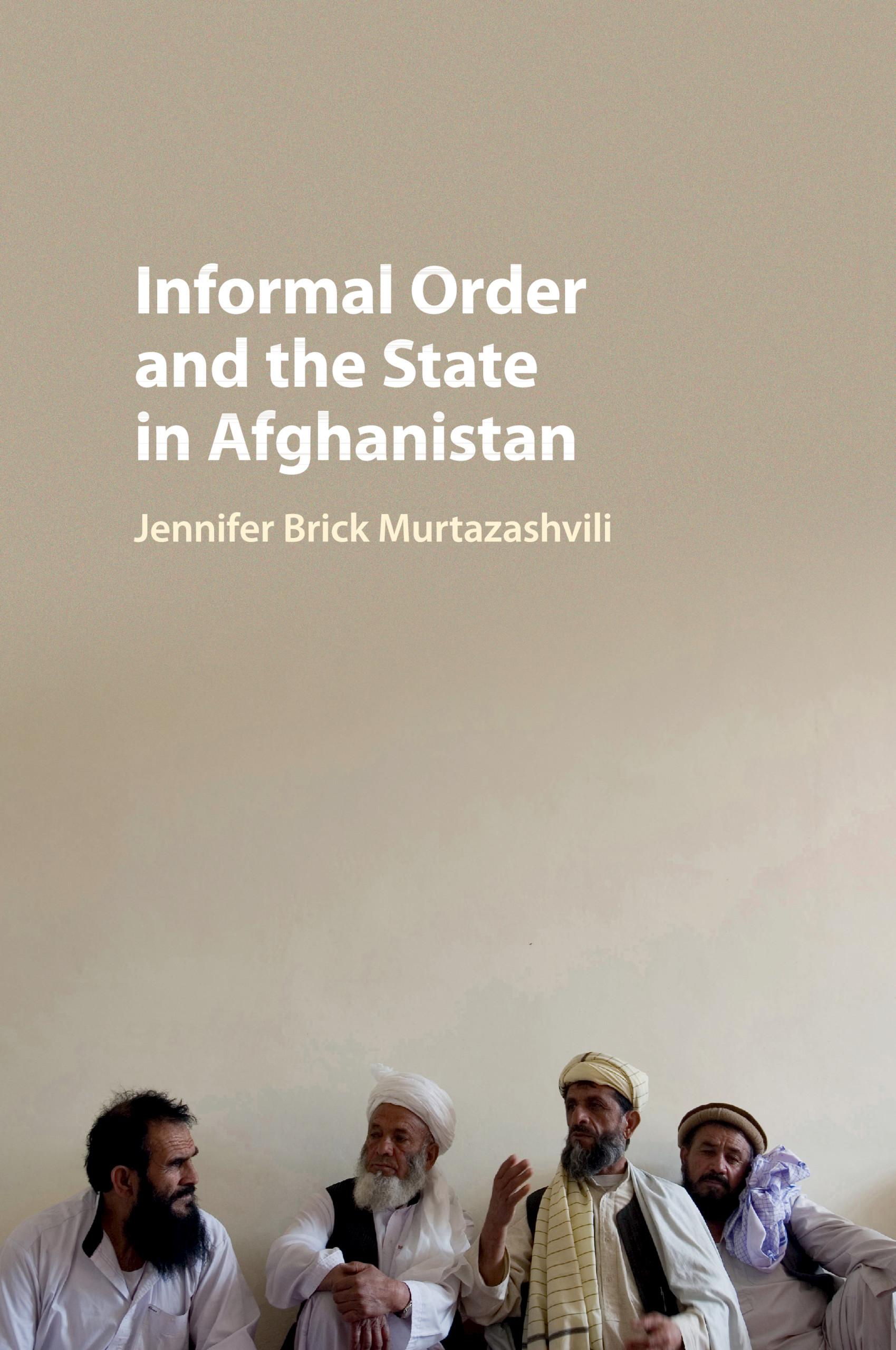Main points
- Most development agencies, especially in the areas of democracy promotion and governance, have been uncomfortable working with customary authority to address corruption in community-driven development. Yet customary authority can provide voice and representation, monitor project implementation, and promote integrity norms – roles that can provide a source of resistance to corruption and capture.
- By nature, customary authority is neither homogenous nor formal. The degree of legitimacy and the capacity of customary organisations vary from community to community. Some customary forms of organisation are highly reactionary and should be avoided. Others, however, can play an anti-corruption role, and practitioners should be aware of their potential.
- By exploring the institutional dimensions of customary authority, policymakers can assess whether or not a given customary organisation is likely to be a source of resistance to corruption and capture. It is important for practitioners to consider whether customary authorities have:
- a) A relatively autonomous space in which to operate, free from heavy-handed interference or co-optation by governments or other external actors;
- b) Constraints on the authority and power of key decision makers and leaders;
- c) Broadly inclusive decision-making structures that have ways to consider the roles of women and minority voices;
- d) The ability to enforce rules and sanction those who violate rules that community members have agreed upon.
- Generally, practitioners should gather information about customary authority as they embark on community-driven development efforts; be wary of prioritising the creation of new forms of organisation that ignore customary authority; and be open to alternative frameworks of project management that facilitate engagement with customary authority.



